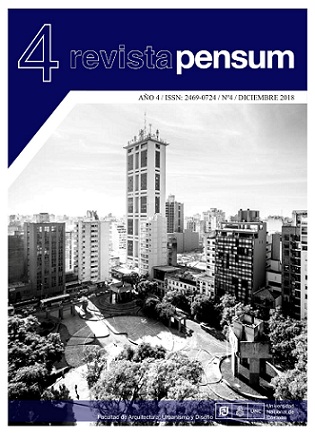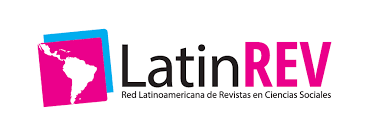Urban planning as aducation for citizenship: a new ideal with new practices
DOI:
https://doi.org/10.59047/2469.0724.v4.n4.22658Keywords:
participatory research, urban planning, education for citizenship, sustainability, university-basic school integration.Abstract
The work is subject to participatory research on urban planning, sustainability and education for citizenship. It is justified by the special actions development of urgency to promote joint undergraduate and graduate to improving the quality of basic education. It aims to integrate, work and communicate concepts of urban planning and sustainability for the community, involves students and teachers in primary schools and university researchers seeking the interdisciplinary integration, contribute to the improvement of the educational process. For the development of this research, the choice of partner school was defined from its location in the urban fabric, as well as their physical, social and territorial conditions. The research methodology took place in two stages: the first in the office at the university and in schools, and in the second stage has field survey. The research is preliminary results community awareness on citizenship and the right to the city, as well as knowledge of urban planning, sustainability concepts and critical training on urban forming processes. For academics, the community living warned of the real needs that an urban project should address, as school students leave able to have a critical look at the urban space in which they live.
References
Agyeman, Julian (2003). The contribution of urban ecosystem education to the development of sustainable communities and cities. In:
Berkowitz, AR, Nilon, CH, Hollweg, KS. (Eds.) In: Berkowitz AR, Nilon, CH, Hollweg, KS (Eds.) Understanding urban ecosystem: a new frontier for science and education. Cary Conference 8th 1999., Springer-Verlag, New York, p. 450-464
Harrison C, Burguess J (2003). Social science concepts and frameworks for understanding urban ecosystems. In: Berkowitz AR, Nilon, CH,
Hollweg, KS (Eds.) Understanding urban ecosystem: a new frontier for science and education. Cary Conference 8th 1999, Springer-Verlag, New York, p 137-140
Lynch, K (1997) A imagem da cidade. Martins Fontes, São Paulo
Maricato, E (2011). O impasse da política urbana no Brasil. Vozes, Petrópolis
Maricato, E(2001). Brasil, cidades: alternativas para a crise urbana. Vozes, Petrópolis
Caquimbo Salazar, S (2009). La calidad del espacio público en la construcción del paisaje urbano. En busca de un hábitat equitativo, Revista INVI, 23(62):75-97
Soares, F.C. (2005). Experiências educativas. Pallotti, Santa Maria
Fuentes
Brasil (2006). Lei n. 9.394, de 20 de dezembro de 1996, estabelece as diretrizes e bases da educação. Disponível em: http://www.planalto.gov.br/ccivil_03/leis/L9394.htm. Accessed: 25 Apr. 2017
Brasil (2001). Estatuto da Cidade. Lei n° 10.275 de 10 de julho de 2001, que estabelece diretrizes gerais da política urbana, Guia para implementação pelos municípios e cidadãos. Câmara dos Deputados, Brasília
Brasil (2010). Ministério da Educação. Coordenação de Aperfeiçoamento de Pessoal de Nível Superior. Plano Nacional de Pós-graduação – PNPG 2011-2020. Brasília, DF: CAPES. Disponível em: https://www.capes.gov.br/images/stories/download/Livros-PNPG-Volume-I-Mont.pdf. Accessed 15 Sept 2015
Brasil (2013.) Ministério da Educação. Coordenação de Aperfeiçoamento de Pessoal de Nível Superior. Diretoria de Avaliação. Engenharias I. Documento de área. Disponível em: <http://www.capes.gov.br/images/stories/download/avaliacaotrienal/Docs_dde_area/Engenharias_I_doc_area_e_comissão_16out.pdf.>. Accessed: May 2014
Passo Fundo (2006). Plano Diretor de Desenvolvimento Integrado. Passo Fundo: 2006.
Downloads
Published
Issue
Section
License
Authors who publish in this journal agree to the following terms:
a. Authors retain copyright and guarantee to the journal the right to be the first publication of the work as well as licensed under a Creative Commons Attribution-ShareAlike 4 license.
b. Authors may separately establish additional agreements for non-exclusive distribution of the version of the work published in the journal (e.g., placing it in an institutional repository or publishing it in a book), with an acknowledgement of its initial publication in this journal.
c. Authors are permitted and encouraged to disseminate their work electronically (e.g., in institutional repositories or on their own website) before and during the submission process, as this may result in productive exchanges, as well as earlier and greater citation of published work (See The Effect of Open Access).
d. 4.0 International Creative Commons Attribution-ShareAlike 4.0 License.












